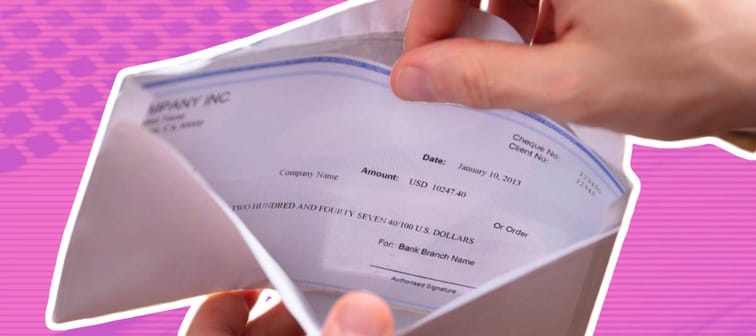What is federal income tax withholding?
Every time you get a paycheck, your employer withholds, or sets aside, taxes based on the information you provided on your Form W-4 when you first started your job.
Your Form W-4, also known as your Employee’s Withholding Certificate, provides financial details that allow your employer to deduct the correct amount of federal income tax from your pay.
If not enough federal tax is withheld, you’ll owe the IRS money and may have to pay a penalty, depending on the size of the shortfall. If too much is deducted, you’ll be owed a tax refund.
When any big changes happen in your life — you get married, have a child, or get a big raise, for example — you will need to update and resubmit your W-4 to your employer so your paychecks can be adjusted accordingly.
In recent years, the IRS redesigned Form W-4, and the changes have meant disappointing refunds for some taxpayers. Even if your financial situation stayed the same in 2021, H&R Block recommends that you review your W-4 on a regular basis.
Some of the changes to Form W-4 included the elimination of withholding allowances, one new blank for income that doesn’t come from jobs, and another that allows you to factor in likely deductions.
Invest in real estate without the headache of being a landlord
Imagine owning a portfolio of thousands of well-managed single family rentals or a collection of cutting-edge industrial warehouses. You can now gain access to a $1B portfolio of income-producing real estate assets designed to deliver long-term growth from the comforts of your couch.
The best part? You don’t have to be a millionaire and can start investing in minutes.
Learn MoreHow much federal tax is deducted from your paycheck?
The actual amount of federal income tax that’s deducted from your paycheck is based on your income and information from your W-4, such as whether you file as a single person or with your spouse, and whether you’re claiming any dependents.
The calculation also takes into account the tax brackets your income falls into. Under America’s progressive tax system, chunks of your income are taxed at different rates.
2023 tax brackets
These are the federal tax brackets for the taxes you’ll file in 2023, on the money you made in 2023:
- Income amounts up to $11,000 (singles) / $22,000 married couples filing jointly): 10%
- Income amounts over $11,001 / $22,001: 12%
- Income amounts over $44,726 / $89,451: 22%
- Income amounts over $95,376 / $190,751: 24%
- Income amounts over $182,101 / $364,201: 32%
- Income amounts over $231,251 / $462,501: 35%
- Income amounts over $578,126 / $693,751: 37%
What is FICA?
Another deduction that you’ll likely see on your paycheck is for the Federal Insurance Contribution Act (FICA).
Your FICA tax contributions are shared between you and your employer and support the Social Security and Medicare programs that you’ll rely on during your senior years.
For each paycheck, 6.2% is deducted for Social Security taxes, which your employer matches. You pay the tax on only the first $160,200 of your earnings in 2023; any income exceeding that amount will not be taxed.
For Medicare taxes, 1.45% is deducted from each paycheck, and your employer matches that amount. Unlike Social Security, Medicare is fully taxed on all of your income, and if your earnings exceed $200,000 you’ll pay an additional 0.9%.
In general, FICA contributions are unavoidable, although exemptions are available to a few select groups including:
- Certain religious sects.
- Foreign government employees.
- Others who are not American citizens but are earning money in the U.S.
- Students working at the schools where they are enrolled.
If you think you might be exempt from making FICA contributions, it’s worth discussing the issue with your employer.
The richest 1% use an advisor. Do you?
Wealthy people know that having money is not the same as being good with money. WiserAdvisor can help you shape your financial future and connect with expert guidance . A trusted advisor helps you make smart choices about investments, retirement savings, and tax planning.
Try NowOther tax deductions
In addition to federal income tax and FICA, you may be subject to other paycheck deductions as well, such as for state and local taxes, or contributions to your company health insurance plan.
You might opt to have a portion of each paycheck diverted into a pre-tax retirement savings account, such as a 401(k), a 403(b), or a traditional IRA.
Although making contributions to your company’s 401(k) will result in a smaller paycheck, your yearly tax bill will be smaller, too, because you’ve reduced your taxable income.
The richest 1% use an advisor. Do you?
Wealthy people know that having money is not the same as being good with money. Advisor.com can help you shape your financial future and connect with expert guidance . A trusted advisor helps you make smart choices about investments, retirement savings, and tax planning.
Try it now









